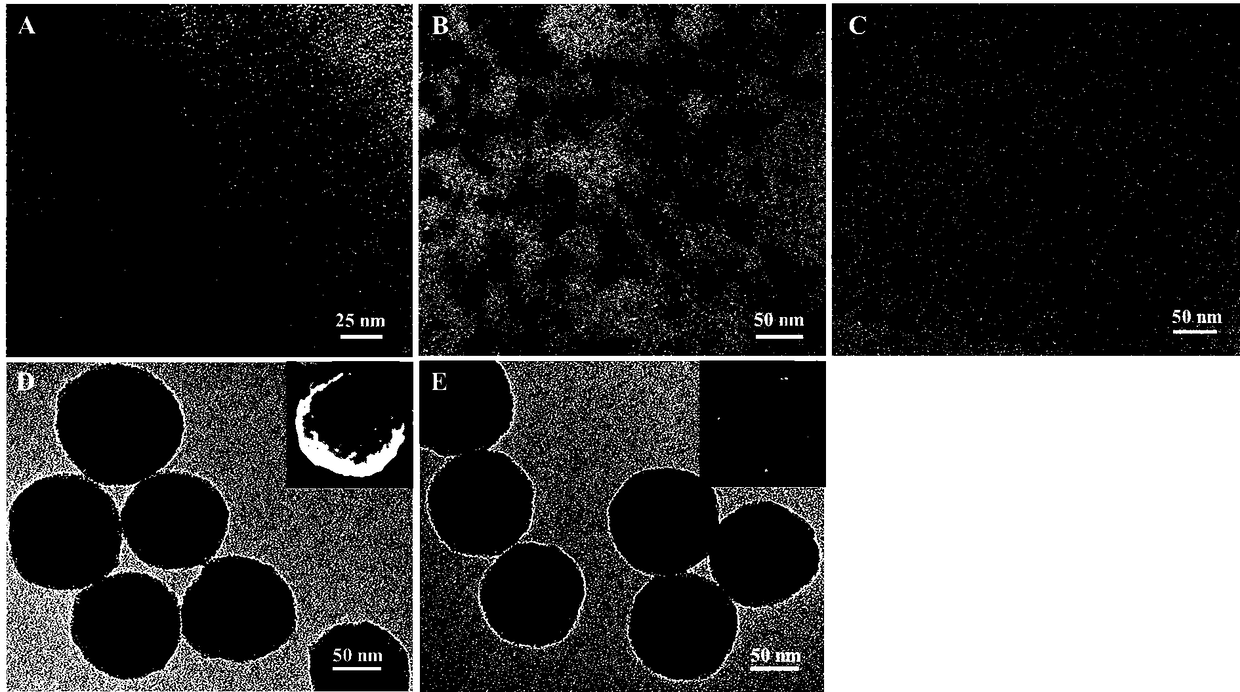Molecular imprinting ratio fluorescent sensor, preparation and application thereof
A ratiometric fluorescence and molecular imprinting technology, applied in materials, food testing, and chemical fields, can solve problems such as data distortion, changing fluorescence intensity, and not being able to provide color changes
- Summary
- Abstract
- Description
- Claims
- Application Information
AI Technical Summary
Problems solved by technology
Method used
Image
Examples
Embodiment 1
[0039] like figure 1 and figure 2 As shown, a method for preparing a molecularly imprinted ratiometric fluorescent sensor, the steps are as follows:
[0040] (1) Preparation of dual fluorescent emission CdTe / ZnQ 2 Nanoparticles: Add 8 mL of CdTe quantum dots to a mixed solution of 25 mL of zinc chloride (1 mmol / L) and glutathione (4 mmol / L), stir well, and react at pH 8 at 100 °C for 40 Minutes to obtain a CdTe / ZnS quantum dot solution. Take 14mL of CdTe / ZnS quantum dot solution, add 50 μL of 8-hydroxyquinoline ethanol solution (15 mmol / L), and stir for 15 minutes to obtain double fluorescence emission CdTe / ZnQ 2 Nanoparticle solution.
[0041] (2) Molecularly imprinted ratiometric sensors (MIPs) prepared by sol-gel method: to the above CdTe / ZnQ 2 Add 37 μL APTES and 3.2 mg brilliant blue to the nanoparticle solution, stir for 1 hour, then add 800 μL CTAB (0.2mol / L), 100 μL sodium hydroxide (0.2 mol / L), 178 μL TEOS and 178 μL ammonia water , react in a dark environment ...
PUM
| Property | Measurement | Unit |
|---|---|---|
| particle size | aaaaa | aaaaa |
Abstract
Description
Claims
Application Information
 Login to View More
Login to View More - Generate Ideas
- Intellectual Property
- Life Sciences
- Materials
- Tech Scout
- Unparalleled Data Quality
- Higher Quality Content
- 60% Fewer Hallucinations
Browse by: Latest US Patents, China's latest patents, Technical Efficacy Thesaurus, Application Domain, Technology Topic, Popular Technical Reports.
© 2025 PatSnap. All rights reserved.Legal|Privacy policy|Modern Slavery Act Transparency Statement|Sitemap|About US| Contact US: help@patsnap.com



